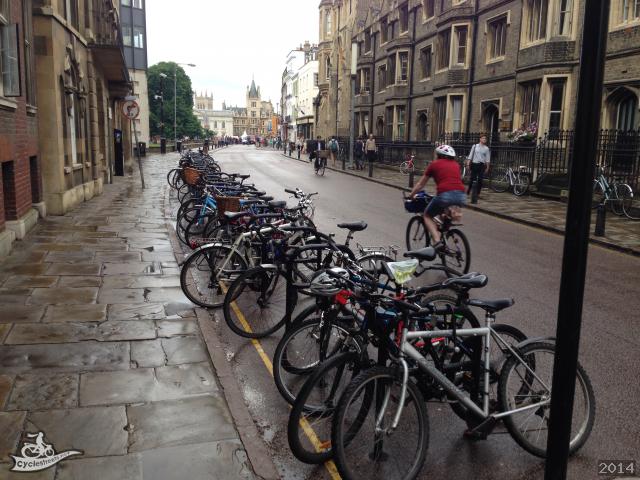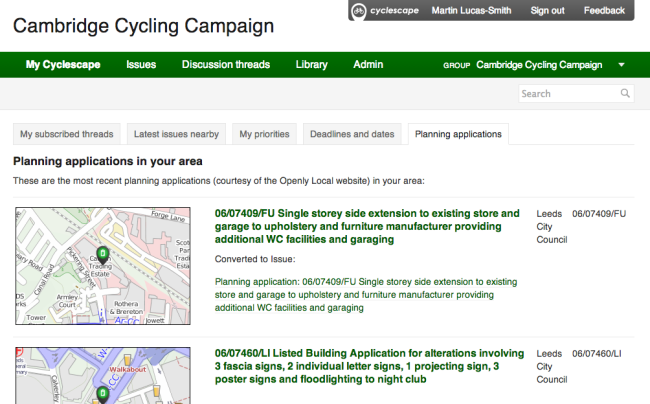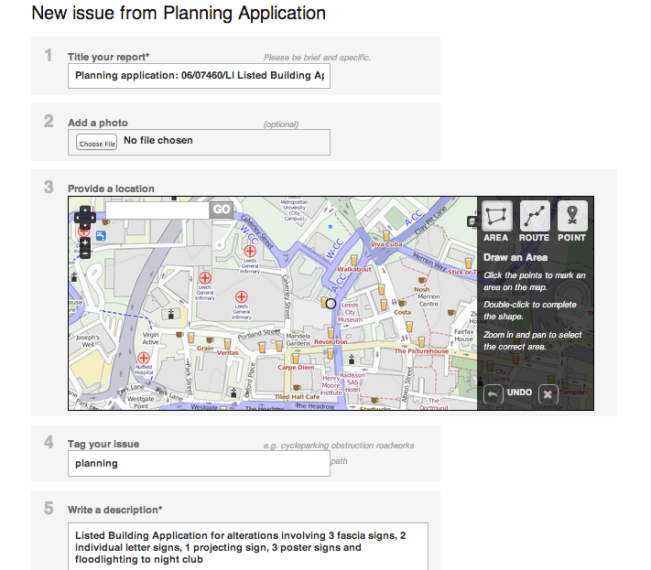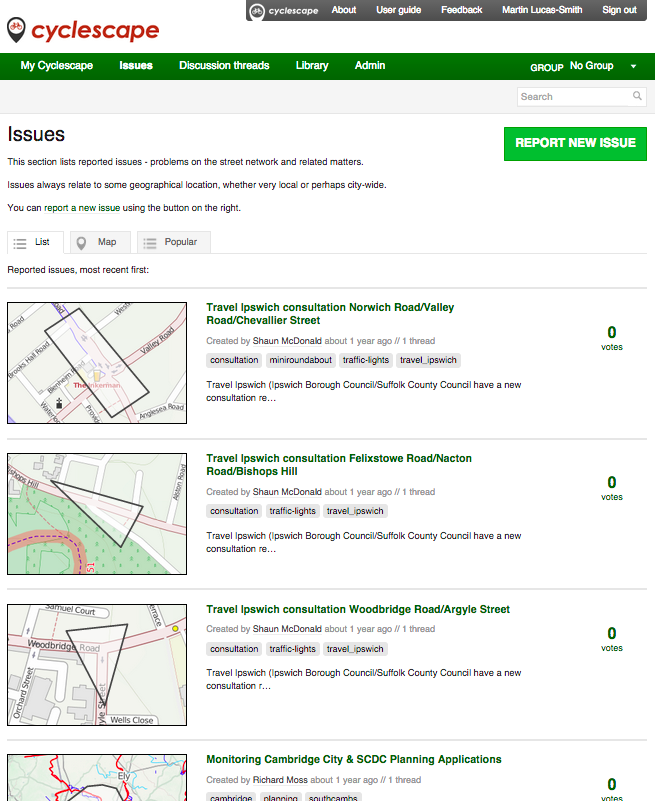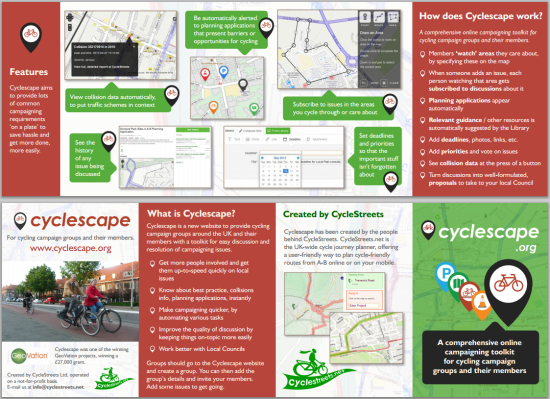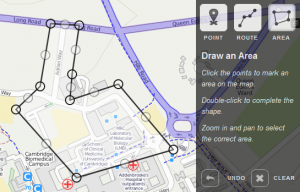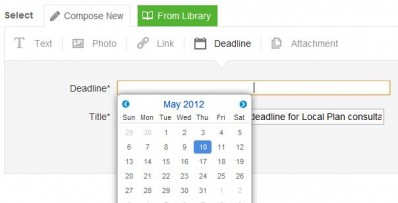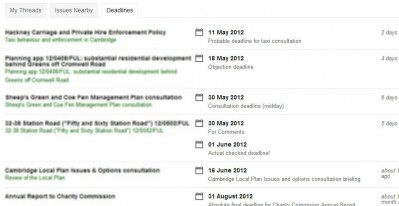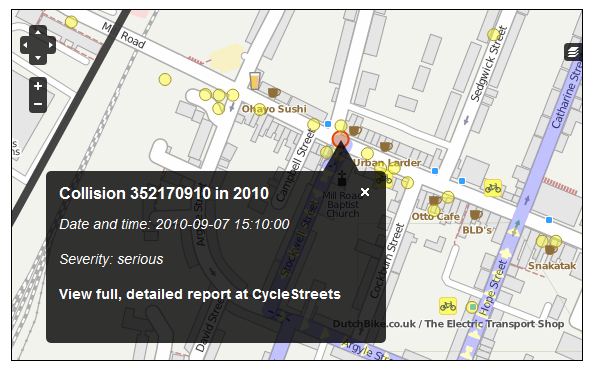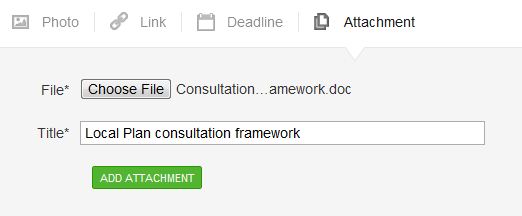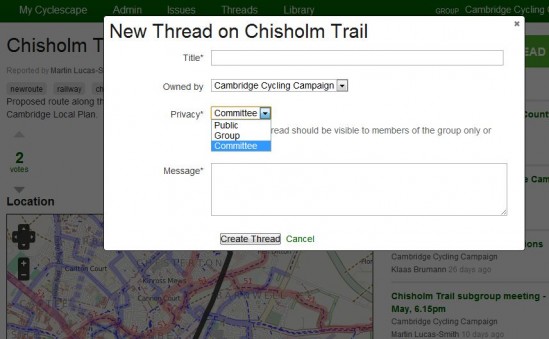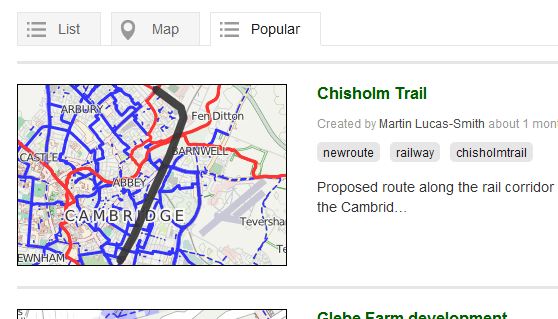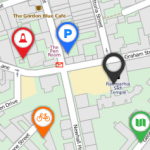
Cyclescape has been used now for three months by Cambridge Cycling Campaign as our test group. We added them even though we knew not everything was in place, as it was important to get good feedback on real campaigning usage, even though that has meant some confusion in the short-term.
Over 180 issues (cycling infrastructure problems) have been posted, over 250 discussion threads on these, containing over 2,000 messages.
We've also had meetings with CTC, Cyclenation, and London Cycling Campaign to show the site as it currently stands and talk through what's done and what's not, to see what they most need:
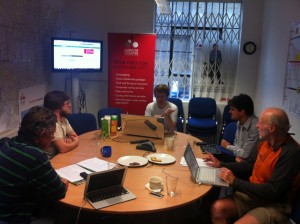
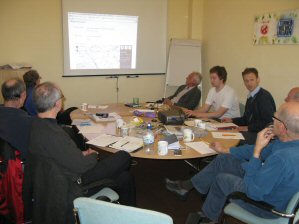
Meetings with London Cycling Campaign and Cyclenation / CTC
A lot of the work going on now is about tidying up and finishing off pieces of functionality, reorganising things a bit, and making things more flexible. The site isn't quite ready for wider usage, but things are falling into place.
These are the main things left now, not in any particular order, to ensure that the site will be a big step up for campaigners:
1) Settings: "What do I get told about?"
A key aspect of the site is to avoid the 'e-mail list syndrome' where everyone gets absolutely everything, which puts off people who don't have enormous amounts of time. Instead, users can outline places they want to hear about things.
a) Three months' usage of the site has clarified what the various settings should now be. This is now being finalised, as top-priority work. [Done]
b) We need a clearer route through to encourage people to set their preferences.
c) The ability to subscribe automatically to discussions based on keywords (e.g. 20mph zones) rather than purely map-based areas.
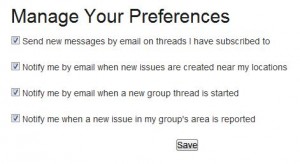
Users have found that the settings don't give them quite enough flexibility yet. The key addition about to be added is auto-subscribing, rather than just being notified.
2) User interface
Much functionality is now in place, but users are having trouble finding things. So:
a) The search box will be moved to a more accessible position and cover all types of data (issues, threads, library) [Done]
b) Reorganising the various listing screens.
c) Removing scrolling past previously-read replies. We're aiming to avoid pagination (which people don't like).
d) Tags (categories) just need an auto-complete so that 'cycle parking' comes up as soon as you start typing: p.. a...
e) Getting a more natural (and 'frictionless') connection between an issue (basically the container for discussions) and threads (the actual discussions). In general, starting a discussion on a completely new issue involves a bit too much friction, which we need to address.
f) General little bits of tidying up, improving the labelling and making the site as 'warm' as possible.

This shows three of a number of ways of viewing what's going on. There are more, and we are gaining a better insight into what users need to see to help them campaign.
3) E-mail integration
From the start, it has been a core principle that people can interact with Cyclescape via e-mail as well as the web, much like a Yahoo Group for instance.
a) At present, a discussion thread can't be started by e-mail. A key question is how to ensure this gets grouped with other discussions on a topic.
b) The ability to move an existing thead into a different issue.
c) Finishing off the work on attachments so they can be attached to an incoming e-mail.
4) The Library
The Library is a place for useful resources to be 'tagged' (categorised) so that Cyclescape can automatically suggest them in discussions. For instance, if a 20mph zone is being proposed, it makes sense for the key guidance on this to be handed to people 'on a plate'.
a) Adding to the library isn't a very smooth process at the moment. We intend to enable any reply to be 'promoted' to be a library item retrospectively.
b) More types of library item will make things a bit more flexible and improve how they appear in discussions.
c) Adding the category tags needs to be made more integrated.
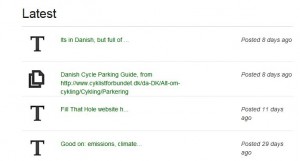
The core Library functionality is there - it just needs a bit more development to ensure it's a genuinely useful campaigning resource.
5) Other features
a) A key need in Cambridge, for which we have grant funding from Cambridge Sustainable City: Getting planning applications landing on the map automatically, something we're very excited about. OpenlyLocal have been making good progress with developing the new PlanningAlerts. We've done some initial work to determine how this will work, interface-wise, to avoid lots of roof extension planning applications (etc.) appearing and cluttering things up.
b) There isn't a listing of My priorities, so there's currently no incentive to set this. Currently you can set this but it's not actually then used. [Done]
Stay tuned for news as these each get ticked off!


